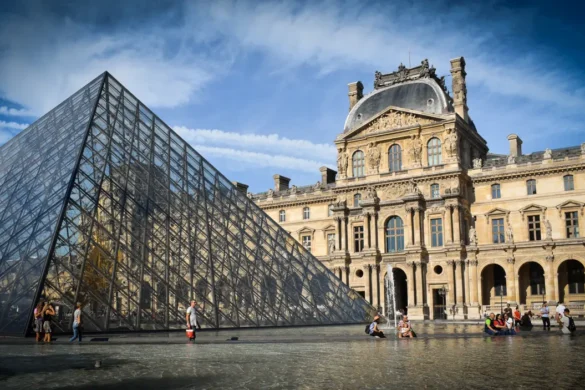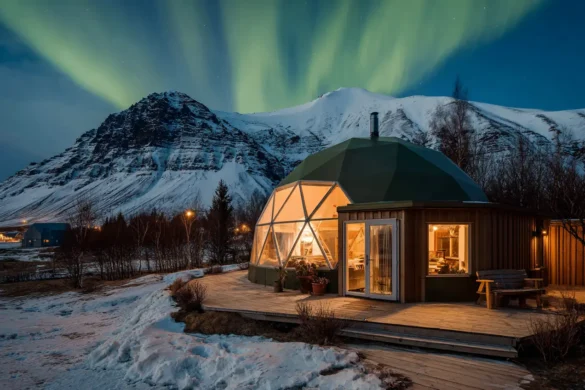I keep coming back to Zambales, and honestly? This slice of the Philippines gets me every time. Picture this: I’m standing on a beach where volcanic minerals make the sand shimmer, while mountains tumble right into the ocean. The first time I tried surfing at Crystal Beach, I spent more time underwater than on my board—but that’s exactly what made it unforgettable!
Look, some of the most beautiful places in Zambales will completely change how you see Philippine beaches. Those volcanic gray sand shores and the crazy clear waters around Potipot Island? Pure magic. And camping under the stars at Anawangin Cove feels like something out of a dream. Here are 12 places that show exactly why I can’t stay away from this incredible province.
Must-See Destinations to Visit in Zambales
Looking to explore Zambales’ most beautiful places? From the stunning beaches of Anawangin Cove to the vibrant marine life of Potipot Island, Zambales is packed with stunning scenery. Stroll through the charming town of Subic, marvel at the natural beauty of Mount Pinatubo, or explore the cultural richness of Iba. Discover the serene allure of Nagsasa Cove, the tranquil waters of Capones Island, or the breathtaking views from Talisayin Cove. Whether you’re into beaches, hiking, or island adventures, here are 12 of Zambales’ most breathtaking spots!

1. Anawangin Cove
Anawangin Cove honestly blew my mind the first time I saw those unusual pine-like trees growing right on a beach. This isn’t your typical tropical paradise – it’s way more interesting. The volcanic ash sand feels completely different under your feet, and camping here actually feels like you’re on another planet.
Boat rates run PHP 1,200-3,000 per boat for small groups, or PHP 300-750 per person for shared boats, and the best time to visit is January through May during dry season. I’ve been there during peak season (March-May) and it gets pretty crowded, but the off-season trade-off is potential rough seas.
The 30-minute boat ride from Pundaquit builds perfect anticipation, and honestly? The hike to the viewpoint is mandatory – those Instagram shots won’t take themselves. Some resorts have actually opened within the cove itself now, which changes the whole vibe if you’re not into the full camping experience. But I still think beach camping under those incredible stars is the way to go.
Don’t expect WiFi (there isn’t any), but that’s exactly what makes this place special. Pack everything you need because you’re really disconnecting here. The contrast between gray volcanic sand, those weird Agoho trees, and turquoise water creates the most unique beach experience I’ve found anywhere in the Philippines.
- Read next: Beautiful Places in the Philippines to Visit

2. Botolan Wildlife Farm
Skip the zoo crowds in Manila – Botolan Wildlife Farm gives you way better animal encounters without the chaos. This Swiss-Filipino family operation feels more like visiting someone’s incredible backyard than a typical tourist trap. Entrance is PHP 85 for adults, PHP 75 for kids, which is ridiculously reasonable for what you get.
I spent way longer here than planned because the owners actually care about their animals – you can tell immediately. The Siberian tiger encounter is unforgettable (and slightly terrifying), but my favorite part was feeding the smaller animals and learning about their conservation efforts. They’re now officially authorized as a wildlife rescue center, so you’re supporting legitimate conservation work.
The farm sits perfectly between the mountains and coast, so you can easily combine this with beach time. Tours take about 30 minutes, but plan for an hour because you’ll want to linger. The green, peaceful setting makes for great photos, and honestly, it’s refreshing to see animals in spacious, well-maintained enclosures.
Kids love this place, but it’s equally fascinating for adults who appreciate seeing conservation in action. The educational aspect doesn’t feel preachy – just genuine people sharing their passion for wildlife protection.

3. Camara Island
Camara Island is that desktop wallpaper made real, except the water is clearer than any screen can show. This uninhabited rock formation creates the perfect backdrop for proving you actually left the office behind. The snorkeling here ranks among my favorites in the Philippines – tropical fish practically pose for your underwater camera.
Getting there requires the same boat from Pundaquit that takes you to Anawangin, making it perfect for island hopping. The dramatic central rock formation begs to be climbed, and the panoramic views from the top justify every scrape you’ll get getting up there. Crystal-clear waters reveal vibrant coral gardens just steps from shore.
What makes Camara special is how untouched it feels. There aren’t any facilities, so you bring everything you need for the day. I actually prefer this – no crowds, no vendors, just you and one of the most pristine snorkeling spots you’ll find. The contrast between weathered rock and brilliant blue water creates photo opportunities that make your colleagues seriously question their life choices.
Combine Camara with Anawangin and Capones for the ultimate island-hopping experience. But honestly, I could spend an entire day just exploring the underwater world around this tiny island. The marine life here is incredible, and the visibility is usually perfect for underwater photography.
✈️ My #1 Hack for Cheap 2026 Flights:
It’s January, so flight prices are climbing fast—but you don't have to pay them. I’m currently seeing roundtrips to Europe for under $300 (deals you won’t find on Google Flights).
Step 1: Join Going.com's Free Plan here. It takes 10 seconds and requires no credit card.
Step 2: If you're doing a big trip this year, grab the 14-day free trial of Premium. You can even use my code JON25 for 25% off.
Seriously, this is the single best money-saving tool I’ve used in 8+ years.
👉 Send me cheap 2026 flights
4. Capones Island
That Spanish lighthouse on Capones Island has been judging bad life decisions since the 1800s, and honestly, I respect that energy. The 20-minute uphill hike to Capones Lighthouse is mandatory – those 360-degree coastal views are worth every drop of sweat and definitely worth the bragging rights.
The island’s main beach offers powdery white sand that’s perfect for recovering after lighthouse climbing, while the more adventurous can try cliff jumping into those incredibly blue waters. This uninhabited gem provides the perfect backdrop for contemplating whether your current job is actually worth it.
I’ve photographed that lighthouse from every possible angle, and it never gets old. The weathered stone against vibrant seascape creates this dramatic contrast that screams “I’m living my best life.” The boat ride here passes other beautiful formations, building anticipation for the main event.
Capones works perfectly as part of an island-hopping day, but it also deserves time on its own. The swimming here is fantastic, and the snorkeling around the rocky areas reveals surprising marine life. Just don’t expect any facilities – bring everything you need and embrace the castaway experience.

5. Magalawa Island
Forgot your phone charger? Perfect timing for Magalawa Island, where limited electricity forces digital detox on even the most addicted workaholics. This crescent-shaped coral island remains one of Zambales’ best-kept secrets, probably because it’s harder to reach than the more famous spots.
The extensive sandbar emerging during low tide becomes this natural aquarium where countless starfish create the most mesmerizing display I’ve ever seen. Snorkeling in the surrounding crystal-clear waters reveals vibrant coral gardens teeming with marine life that hasn’t been scared off by crowds.
I actually love how remote this feels – getting here requires real commitment, which filters out casual tourists. The boat ride from Palauig is longer than other islands, but that isolation creates this incredible sense of discovery. Fresh seafood here is caught literally that morning.
The sunset views here are phenomenal, and night skies reveal stars you forgot existed in the city. Accommodations are basic but comfortable, and the lack of modern distractions becomes this incredible luxury. This is where stress actually melts away instead of just temporarily hiding.

6. Mt. Pundaquit Trek
Trade your StairMaster routine for actual mountain views – Mt. Pundaquit delivers coastal panoramas no gym window can match. This moderate trek winds through diverse terrain before revealing spectacular views of the entire Zambales coastline. The 4-5 hour round-trip reaches 664 meters elevation, and standing at the peak honestly makes you feel like you’ve discovered a secret viewpoint over paradise.
The trail’s brilliant feature is its versatility – hikers can descend directly to Anawangin Cove on the opposite side, creating this perfect land-to-sea adventure. I did the trek in November when temperatures were cooler, and visibility was incredible for photography.
The most rewarding approach combines an overnight camp at Anawangin with hiking Mt. Pundaquit first, then taking the boat back to Pundaquit the next day. This gives you mountain views and beach camping in one amazing weekend.
Physical fitness helps, but this isn’t an extreme challenge – more like a really good workout with the best possible reward. The diverse ecosystem along the trail keeps things interesting, and reaching that summit viewpoint creates the kind of accomplishment that makes Monday meetings feel completely manageable.

7. Mt. Pinatubo
Mt. Pinatubo offers otherworldly landscapes that’ll make you question if you’re still in the Philippines. The journey starts with a thrilling 4×4 ride across moon-like lahar fields, followed by about a 1.5-hour trek to the famous turquoise crater lake. Swimming in the crater lake is forbidden as of 2013, but honestly, just seeing that electric blue water against ash-gray walls is worth the entire trip.
The best time to visit is during dry season from December to May for clear skies and safe trails. I went early morning to avoid both heat and crowds, which worked perfectly. Foreign nationals must book 20 days in advance and bring passport copies – don’t forget this because they’re strict about entry requirements.
The 4×4 ride across the lahar fields is an adventure itself – bumpy as hell but incredibly scenic. Tour packages typically run around PHP 2,899 per person including transportation and 4×4 ride. The trek involves stream crossings and rocky terrain, but it’s manageable for beginners with decent fitness.
What strikes me most is how this violent 1991 eruption site has transformed into such serene beauty. The contrast offers this profound reminder of nature’s resilience – exactly what you need after stressful work weeks. The mineral-rich waters create incredible photo opportunities, and the sheer scale of the crater is mind-blowing.

8. Nagsasa Cove
Nagsasa Cove brings those desktop wallpapers to life with its perfect blend of mountains meeting sea. This crescent-shaped beach of fine gray volcanic sand sits framed by rolling hills that offer easy morning hikes with panoramic rewards. The lack of strong cell signals here actually becomes the biggest luxury.
I’ve never slept better than under the stars on this beach, with only gentle waves as white noise. The boat ride from Pundaquit passes dramatic coastal formations that are worth capturing on video. The cove’s calm waters are perfect for kayaking or just completely disconnecting from reality.
Nagsasa feels more secluded than Anawangin but offers similar volcanic sand and mountain backdrop experiences. Sunset here transforms the beach into this magical palette that no Instagram filter can improve. The surrounding hills provide easy hiking for better views and photo opportunities.
What I love about Nagsasa is how peaceful it remains compared to its more famous neighbor. You get the same incredible scenery with fewer crowds, especially on weekdays. Camping here feels more intimate, and the star gazing is absolutely incredible without any light pollution.

9. Potipot Island
Potipot Island offers private island vibes without celebrity prices when you time it right. Current entrance fee is PHP 300 per person including one hour of free kayaking, and this tiny paradise can be walked around in just 20 minutes yet somehow feels expansive when you’re there.
The best time to visit is November through April during dry season, and definitely hit this place on weekdays for that private island experience. The boat ride from Uacon in Candelaria takes about 10-15 minutes and costs around PHP 400-500 per boat.
The pristine white sand beach creates a 360° shoreline playground with shallow, crystal-clear waters perfect for both adventure and relaxation. My favorite spot is under the pine trees where natural shade creates the perfect afternoon nap setting. There’s no electricity except for generators at night for overnight campers.
Recent developments have added more facilities, but it still maintains that unspoiled charm during off-peak times. The mountain backdrop creates stunning photos, and the water clarity is incredible for snorkeling. Just bring all your supplies since options on the island remain limited – that’s part of the authentic experience.

10. Subic Bay Freeport Zone
Subic Bay makes adulting easier by balancing adventure with comfort in this former US naval base turned vacation wonderland. The unique blend of history and nature creates options for everyone in your group – dive among sunken warships in the morning, shop duty-free in the afternoon.
I tested my limits zip-lining through jungle canopies at Tree Top Adventure and learned indigenous survival skills at JEST Camp. Wildlife encounters at Zoobic Safari feel more authentic than typical zoos, while Ocean Adventure offers marine shows that don’t feel completely cheesy.
The international-standard hotels mean you never sacrifice comfort after days of adventure. This infrastructure makes Subic perfect for friend groups with different comfort levels or families juggling multiple interests. Meat Plus Café serves steaks worth building your entire itinerary around.
Subic’s year-round accessibility means you can visit anytime, though March through May offers peak weather conditions. The excellent infrastructure, diverse activities, and historical significance create this unique combination you won’t find elsewhere in Zambales. It’s adventure with all the conveniences.

11. Talisayen Cove
Talisayen Cove offers legitimate digital detox with its remote volcanic gray sand beaches accessible only by boat or challenging trek. The journey itself filters out casual tourists, ensuring genuine solitude that’s increasingly rare anywhere.
The pristine shoreline sits framed by dramatic rock formations with excellent visibility for snorkeling near small coral patches. This is where stress melts away almost immediately – I still dream about the night sky here, completely unpolluted by artificial light.
Getting to Talisayen requires either a 30-minute boat ride from Pundaquit or a 3-hour hike over hills and across streams. The effort creates this incredible sense of earned discovery. Nothing beats watching the entire cove transform during golden hour with not another soul in sight.
Talisayen represents Zambales at its most unspoiled – volcanic shores, clear waters, and complete disconnection from the digital world. The snorkeling here reveals marine life that hasn’t been disturbed by crowds, and the rock formations create natural pools perfect for photography.

12. Silanguin Cove
Silanguin Cove delivers ultimate workplace bragging rights as the most remote cove in the Zambales chain. As the crown jewel that most colleagues haven’t conquered yet, it rewards the 45-minute boat journey with dramatic scenery combining volcanic sand, towering mountains, and crystal waters.

The unique ecosystem convergence creates fascinating swimming spots where freshwater meets ocean. Small mangrove forests offer perfect morning kayaking routes, while local fishermen prepare the freshest possible seafood dinners on request. The boat ride passes other beautiful coves, building anticipation for the main attraction.
I love how this represents Zambales in its purest form – untouched beauty that requires real commitment to reach. Clear night skies reveal stars most city dwellers forget exist, and the complete isolation creates memories that crystallize into stories worth telling for years.

Plan this adventure with your most adaptable friends who appreciate authentic experiences over Instagram opportunities. Silanguin isn’t about convenience – it’s about discovering places that feel genuinely undiscovered, which is increasingly rare in our connected world.

Global Viewpoint is a personal blog. All content is for informational and entertainment purposes only and does not constitute professional financial, medical, or legal advice.





